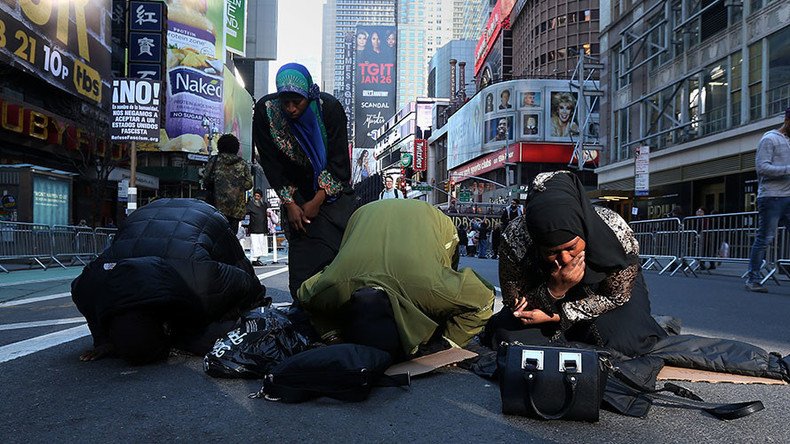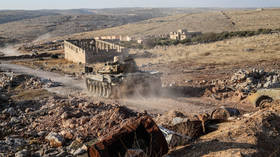Democratic senator proposes tougher federal hate crime law

The Connecticut senator's new bill would enhance the federal hate crime law to fight “dramatic underreporting” through creation of hate crime hotlines, increased penalties for perpetrators, and broader access for victims seeking restitution.
"Beyond the law, leaders of our nation have to condemn hate crimes in no uncertain terms, consistently, repeatedly, unequivocally," Senator Richard Blumenthal (D-Connecticut) said during a news conference in Hartford on Monday, according to AP. "The condemnation by our leaders, beginning with the president of the United States, has to be consistent and repeated. And this kind of condemnation has been lacking."
Press conference by U.S. Senator Richard Blumenthal on hate crimes (@ Legislative Office Building in Hartford, CT) https://t.co/by3qmru6Lx
— Joseph Arthur Young (@georgeson1992) March 13, 2017
The bill would create incentives for law enforcement to submit credible and complete reports on hate crimes. Grants would be established to fund state-run hate crime hotlines.
The bill would also increase penalties for hate crimes. Judges would be allowed to require those convicted under a 2009 federal hate crimes law to undergo a period of supervised release, including community service and educate centered on the community targeted by the crime.
Victims of hate crimes would also have the right to sue in federal courts, even in states without hate crime laws.
Blumenthal said FBI data shows a 6.8 percent increase in hate crimes nationwide in 2015, but due to “dramatic underreporting” the real figures is likely much higher.
He appeared leaders from the Council on American-Islamic Relations, Greater Hartford NAACP, the Anti-Defamation League, and Hartford Gay and Lesbian Health Collective.
Florida mosque fire was deliberately set, $5k reward offered https://t.co/PeCA6XfGstpic.twitter.com/tbM5E6goK0
— RT America (@RT_America) February 24, 2017
Following the election in November 2016, Connecticut experienced several instances of hate crimes and hate speech, including racist remarks painted on Old Lyme High School, a KKK costume and Donald Trump flag on display at an East Windsor bonfire and high school students shouting "build the wall" during a Wilton-Danbury football game.
Meanwhile, in Washington, DC, someone assaulted an employee and vandalized a prominent LGBT community center, Casa Ruby, on Sunday afternoon, according to the Metropolitan Police Department. The center’s executive director said this was the third incident the center had faced in the past two weeks.
“Unfortunately we’ve seen a pattern that people begin with threats and then deliver on their promises,” Ruby Corado said, according to DCist. “I used to get a lot of threats. Now they’re showing up here.”
Corado said during a press conference last Friday that hate crimes in DC had increased by 62 percent from 2015 to 2016, from 66 incidents to 107, and those related to gender identity nearly doubled.
“It is an increase – I live it. I get bullied. I get name-called. It’s real,” Cardo said, “I never had to call the police like we’ve had to call the police in the last six months.”
Asked about that incident and similar attacks in Florida, New Jersey and Oklahoma, White House spokesman Sean Spicer did condemn the violence but said the incidents were unrelated.
“One of the points that we’ve made in previous statements on this is that this is not the way that we as Americans solve our differences, we don’t attack each other, we don’t engage in this kind of behavior,” said Spicer. “We have a First Amendment that allows us to express ourselves, and that’s the appropriate way, but doing it where you’re threatening violence or destruction or vandalism is inappropriate in all of its forms.”
When pressed about a possible connection between incidents, Spicer responded “I don’t there is any connection between – I think that would be a stretch, to say the least.”













